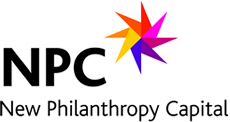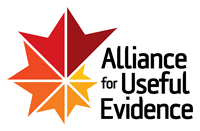Sir Stuart Etherington calls for careful handling of impact measurement
Read the original article published on 2 December 2011 in Third Sector magazine here.
NCVO chief says that giving might not be driven by rational behaviour
The increasing focus on impact measurement should not lead charities to assume that all individuals give for rational reasons, according to Sir Stuart Etherington, chief executive of the National Council for Voluntary Organisations.
Speaking at an event to launch the Social Impact Analysts Association, set up to share best practice on impact measurement across the world, Etherington said there were many risks if impact measurement was handled wrongly.
“You are in the vanguard of a terribly, terribly important journey,” he told delegates at the event. “One where it is possible to make terrible, terrible mistakes.”
Etherington questioned how useful impact measurement could be in generating more donations from individuals. He said that by assuming people gave for rational reasons – because of data generated by impact measurement, for example – charities could miss a lot of the complexities as to why they gave.
“I’m not sure philanthropy is necessarily driven by rational behaviour,” he said. “A lot of the evidence suggests it isn’t.”
But he said impact measurement was important and could be located as a function in the chief executive’s or operations office at a charity.
Etherington said it was important that impact measurement was not just a bolt-on activity for charities; it had to be “embedded in their thinking”, he said, because “the desire for more and more data is going to grow and grow”.
Martin Brookes, former chief executive of New Philanthropy Capital and a trustee of the SIAA, who also spoke at the event, said the sector should be far more advanced with impact measurement than it was.
“I think it’s a shame that, with something as important as social impact, there’s not been greater investment in it,” he said. “That’s a collective failure.”
Rob Owen, chief executive of the St Giles Trust, agreed that not enough resources had been put into impact measurement. He criticised funders for not giving grants that covered it, but said it was nevertheless an important thing for charities to do.
“If you don’t evidence what you do, you won’t survive,” he said. “You probably don’t even deserve to survive.”







+44 (0)207 438 2598
[email protected]
Follow us on Twitter
Join us on LinkedIn
Join us on Facebook
Our photos on Flickr
Subscribe to our Feed